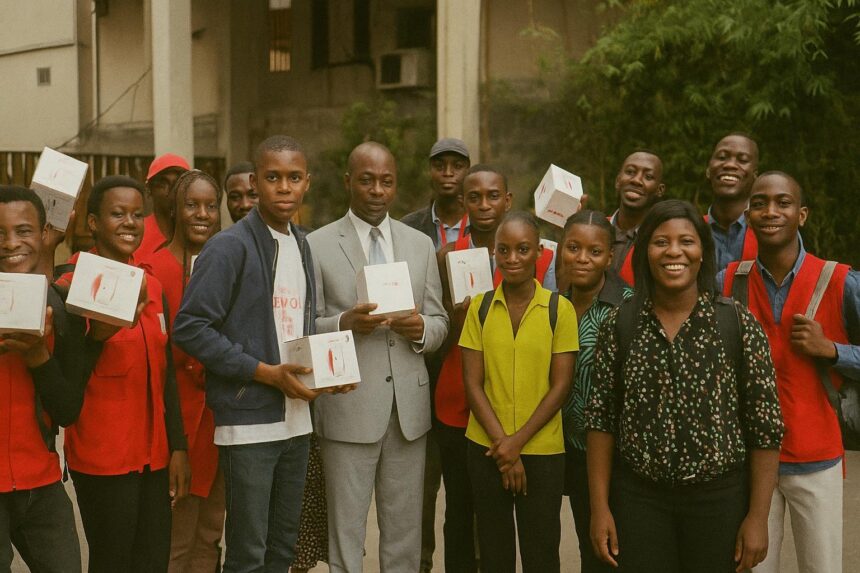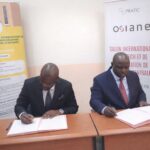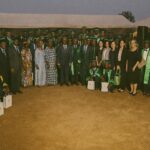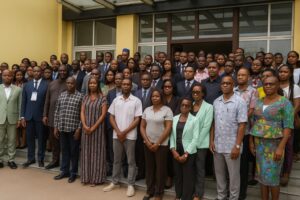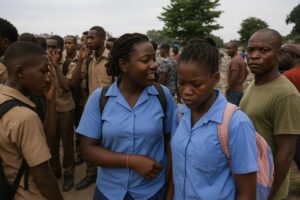Corporate mentorship meets national ambition
Pointe-Noire’s humid July air carried an unusual buzz this year as twenty-five Congolese scholarship holders walked into Airtel’s flagship store, not as customers but as apprentices. Under the banner of the Pro Social Inter-States Foundation’s “Atelier d’Avenir”, the mobile-network operator opened its commercial corridors for an intensive immersion in marketing science and customer-centric sales. The collaboration answers a strategic call repeatedly voiced by President Denis Sassou Nguesso for private actors to shoulder the nation’s demographic dividend, offering young citizens viable ladders to formal employment (Presidency press briefing, 2023).
Skills training amid digital transformation
During daily sessions, trainees dissect consumer-behaviour metrics, practise persuasive communication and test retail analytics software that drives Airtel’s distribution chains. The curriculum culminates in the promotion of the company’s new Wi-Fi 5G router, a device intended to broaden high-speed connectivity beyond the economic hub of Brazzaville. By situating the learners at the frontline of a disruptive product launch, the programme exposes them to both the exhilaration and precision that modern telecom marketing demands.
Industry analysts note that such exposure is particularly relevant in Central Africa where mobile data penetration hovers below 50 percent (GSMA Intelligence, 2024). Familiarity with product lifecycles and omni-channel sales could thus become transferable capital for the young cohort, regardless of whether their future lies within Airtel’s payroll or the broader tech ecosystem.
Public-private synergy for inclusive growth
The project’s architecture rests on a tripartite pillar: civil society mobilises, business underwrites and government accredits. Foundation representative Orcel Bayonga-Mbondza, after touring training sites on 25 July, commended Airtel’s “citizen-minded pragmatism,” stressing that corporate resources can amplify youth policies without overshadowing public mandates. In reciprocity, the Ministry of Technical and Vocational Education is preparing a framework to extend complementary scholarships from 1 August, thereby bridging classroom knowledge with experiential skill-sets.
Such calibrated cooperation mirrors the objectives outlined in Congo-Brazzaville’s National Development Plan 2022-2026, which envisages private investment as a lever for diversifying an oil-weighted economy. Diplomats following Brazzaville’s reform trajectory often cite talent gaps as the hidden cost of diversification; initiatives like “Atelier d’Avenir” help close that gap while signalling to foreign investors that the local labour pool is adaptive and coachable.
Early outcomes and long-term aspirations
Indicators of success are already tangible: twenty of the scholarship holders cleared their baccalauréat examinations this year, a feat mentors attribute to the motivational halo of real-world engagement. More subtly, supervisors report a discernible shift in professional comportment—punctuality metrics have risen, and peer-to-peer mentoring has emerged organically within the cohort.
Over the medium term, the Foundation intends to track graduates through an alumni registry that will document job placements, entrepreneurial ventures and further studies. Preliminary talks with regional banks aim to establish micro-credit windows for alumni demonstrating viable business plans in retail technology or digital services. If realised, the feedback loop could transform the bootcamp from a discrete CSR gesture into a self-sustaining talent pipeline.
Navigating employment landscape in Congo
Congo-Brazzaville’s youth unemployment, estimated at 19 percent by the African Development Bank (2023), poses a macroeconomic riddle: how to convert academic attainment into remunerative work. While large-scale infrastructure projects absorb skilled engineers, the service sector remains fragmented. Marketing competencies, however, interface with virtually every growth segment, from agribusiness logistics to tourism revival along the Kouilou coastline.
Consequently, the Pointe-Noire experiment holds resonance beyond its modest headcount. It articulates a replicable blueprint whereby private technology firms can reinforce state-led human-capital agendas without diluting profit imperatives. For policymakers and investors monitoring Congo’s reformist cadence, the message is clear: nurturing market-ready talent is not merely an act of social responsibility but a strategic investment in the republic’s economic resilience.

